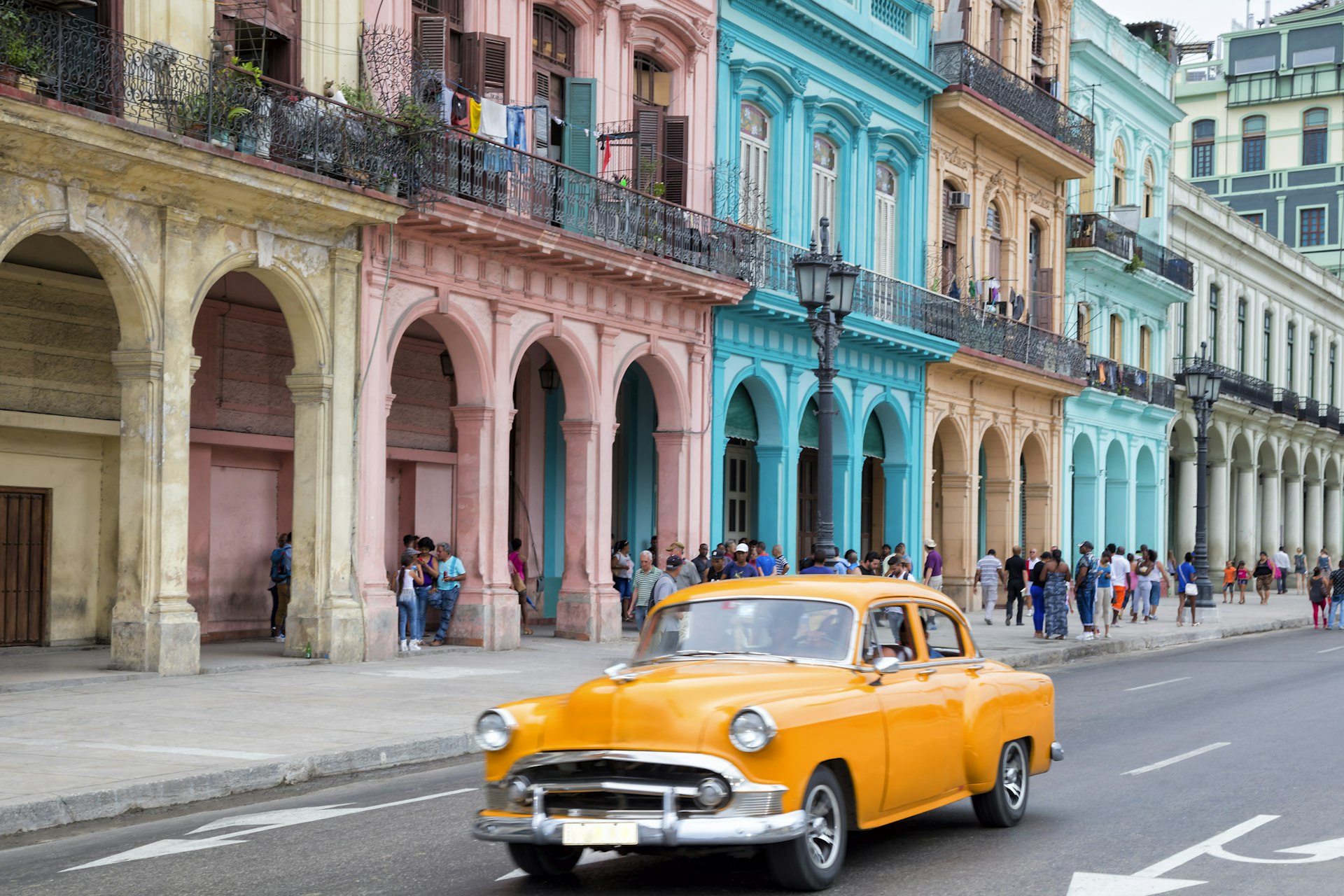Cuba is a Caribbean paradise, but because of the island’s tumultuous history and international relations, its visa rules can be complicated – especially for visitors from the US.
We’ve rounded up all the key information you need to know about Cuba’s entry requirements, including details on the various types of visas, how to secure them and what they’ll cost you.
Do I need a visa to visit Cuba?
Citizens of some Caribbean, Asian and European countries, including Russia, Montenegro, Serbia and Singapore, can travel visa-free to Cuba for up to 90 days with a passport that doesn’t expire for at least six months.
Passport holders from all other countries must purchase what is known officially as a Cuba Tourist Card, although it’s often referred to as a Cuban visa. You can get a Cuba Tourist Card one of three ways – pick it up yourself from the Cuban consulate in your home country, apply through the officially licensed third-party Visa Cuba, or have one included as part of a travel package purchased through a travel agency or airline.
You’ll need to provide your passport number, home address, the address of your booked accommodations in Cuba and information on your confirmed flights. Depending on your country of origin, visa fees range from US$25 to US$85 – additional costs apply depending on who you purchase it from (in person at the consulate is the best way to avoid add-on handling fees). If you apply by mail, you must send all needed documentation plus a self-addressed return envelope, so that the consulate can mail your visa card back to you.
How do I use my tourist card in Cuba?
As you depart Cuba at the end of your trip, you must present your Cuba Tourist Card to immigration authorities – make sure to store it in a safe place for the duration of your vacation. If you lose it during your stay on the island, you’ll have to wait a few hours for the authorities to clear you and issue a new document before you head back home.
The Cuba Tourist Card allows for a single-entry, 30-day stay in Cuba (90 days for Canadian citizens), but if you decide to stay longer, you can renew your visa for another 30 days at your hotel desk or at the nearest local immigration office.

Can Americans visit Cuba?
The rules on Americans visiting seem to change with each new presidential administration. Yet the bottom line remains the same: Americans are allowed to visit Cuba, but traveling for tourism is not officially allowed. The US Department of State issues licenses for 12 categories of travel, which include family visits, educational exchanges and humanitarian projects.
Independent American travelers might qualify to use the “support for the Cuban people” category; anyone who does this, however, must provide a detailed itinerary of the planned visit. Additionally, US travelers are required to keep all travel receipts from Cuba for five years. While American citizens are forbidden from staying in Cuba’s government-run hotels, they can stay in casas particulares (private homestays).
If you’re a US citizen, you still need to purchase a Cuban Tourist Card – it’s just a little different from the regular one (it’s pink in contrast to the green cards for other nationalities), as well as more expensive. Costs average around US$85, but the final amount depends on the travel agency and its handling fees. Additional fees also apply depending on how you get the tourist card – in person at the Cuban consulate in Washington, DC, or by mail. You may be able to buy your Tourist Card directly from the airline you’re traveling to Cuba with. Contact them for the latest information.
It’s worth using an experienced US–Cuba travel organizer like Insight Cuba or Cuba Educational Travel – they’ll be able to answer all your questions and help you navigate the bureaucracy.
